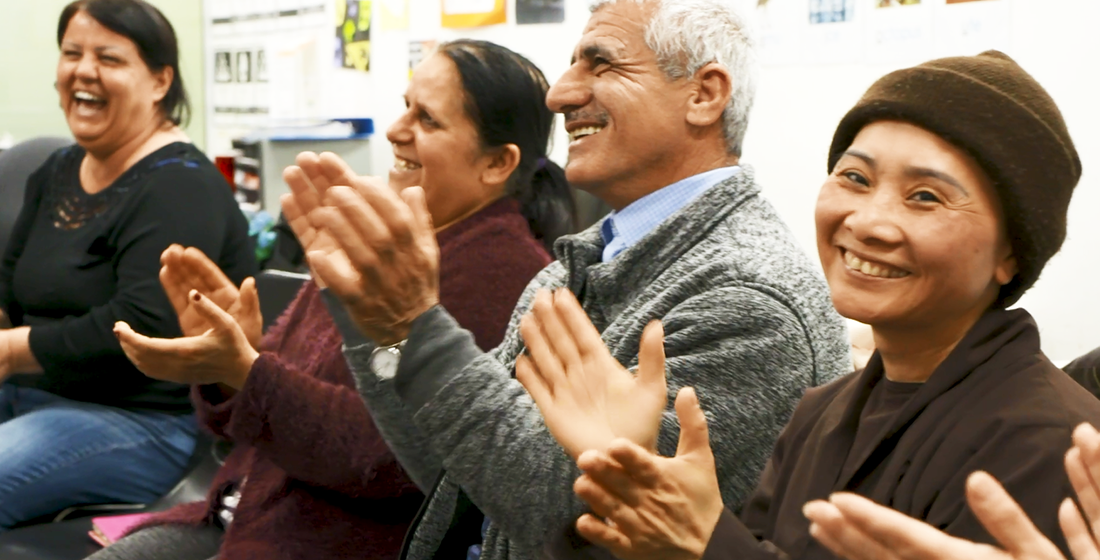
All adult Australians must have access to learning environments that embrace an inclusive learning culture, which means valuing and respecting difference and empowering them to reach their full potential.
Rationale
Research shows us that people who disengage from education are disproportionately disadvantaged. Currently 1 in 8 Australians students do not finish Year 12, and completion rates are worse for low socioeconomic status (SES) students in low SES communities. This places them at higher risk of being disengaged from full-time work, study or training for most of their lives.
In rural and regional areas, students have less access than their urban counterparts to education services. They are less likely to complete Year 12; less likely to go to university and more likely to drop out if they enrol.
There has been some improvement in terms of the Closing the Gap education targets for Indigenous people but the data is not disaggregated, which can effectively mask issues particularly in regional and remote locations.
Health, education and employment outcomes for Indigenous Australians continue to be worse than for non-Indigenous people. There is a close association between low levels of education and incarceration for Indigenous Australians. In fact, there are serious gaps between Indigenous Australians and the rest of the population in terms of incarceration, death by suicide, substance abuse and mental health.
High levels of psychological distress are associated with lower income, lower educational attainment and unemployment. Each year, 1 in 5 (20%) of Australians aged between 16 and 85 will experience a mental health condition. The economic cost of mental health conditions to Australia is significant, with estimates ranging up to $40 billion a year.
Australians with a disability are more likely to be unemployed compared to those without a disability (10.0% compared with 5.3%). 36% of people with a disability aged 18–64 years have completed Year 12, compared with 60% for those without a disability. 45% of people with a disability in Australia are living either near or below the poverty line. This is more than double the OECD average of 22%.
Older Australians continue to miss out on the benefits of the digital economy and Internet tools that could help them manage their lives better and support them to overcome some of the physical, psychological and social barriers that accompany ageing. While the digital divide is narrowing in Australia, divisions persist for those who also experience other forms of social inequity, including vulnerable older people, who are poor, unemployed, have low educational attainment, have a disability, are Indigenous, were born in non-English speaking countries and/or live in rural and regional areas.
Learning empowers people. It offers strong social returns in productivity, community participation, political awareness and active citizenry. In a rapidly changing society, with technological advances and growing inequalities, adults must have the opportunity to gain and build their skills and knowledge in order to make informed choices and improve their lives.
Research shows that inclusive learning environments need:
- strategic outreach
- ongoing engagement
- tailored support
- a flexible learning environment.
Recommendations
ALA is calling for:
- funded youth learning programs that encourage aspiration and agency
- strategies that link people with community-based, flexible and high quality education, training and pathways to employment
- funded adult learning programs that are accessible to people with mental health conditions and/or people with physical disabilities
- incorporate adult and community education into mental health and disability programs as an integral part of community health, rather than as an external programs
- funded adult education programs for older Australians that encourage productive ageing
- infrastructure funding for local sites of adult learning practice in Indigenous communities such as youth media centres, neighbourhood houses or community learning centres
- funded ACE formal and non-formal education and training programs for offenders on community based orders.
Resources and research
- Policy platform
- Fact sheets
- ACE in rural and regional Australia
- Disengaged youth and ACE
- Learning and civic participation
- The ageing population: What are the implications for ACE
- The role of ACE in support equitable mental health reform?
Other policy areas
- Adult and community education
- Adult language, literacy and numeracy
- Lifelong learning communities
- Educating for sustainable development
